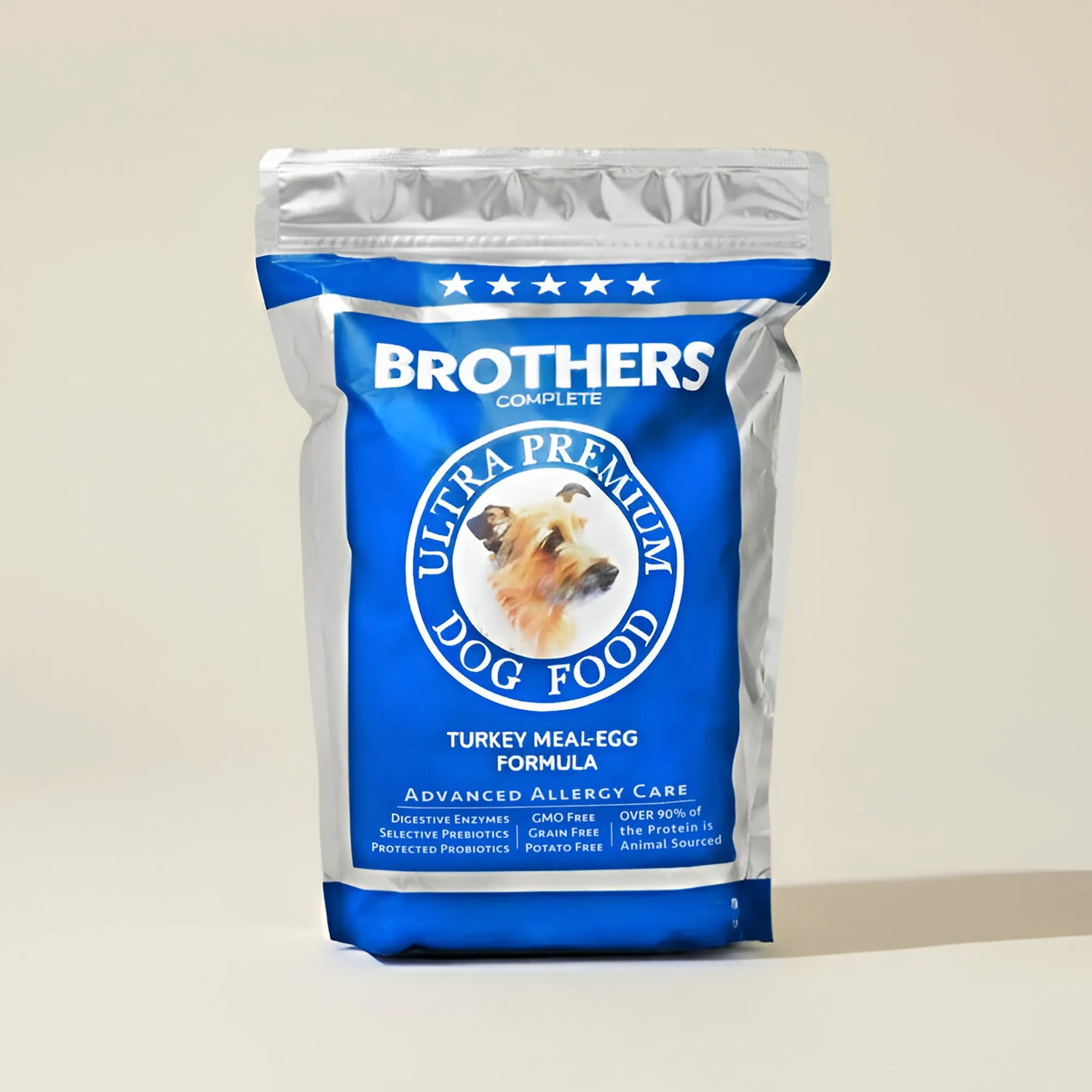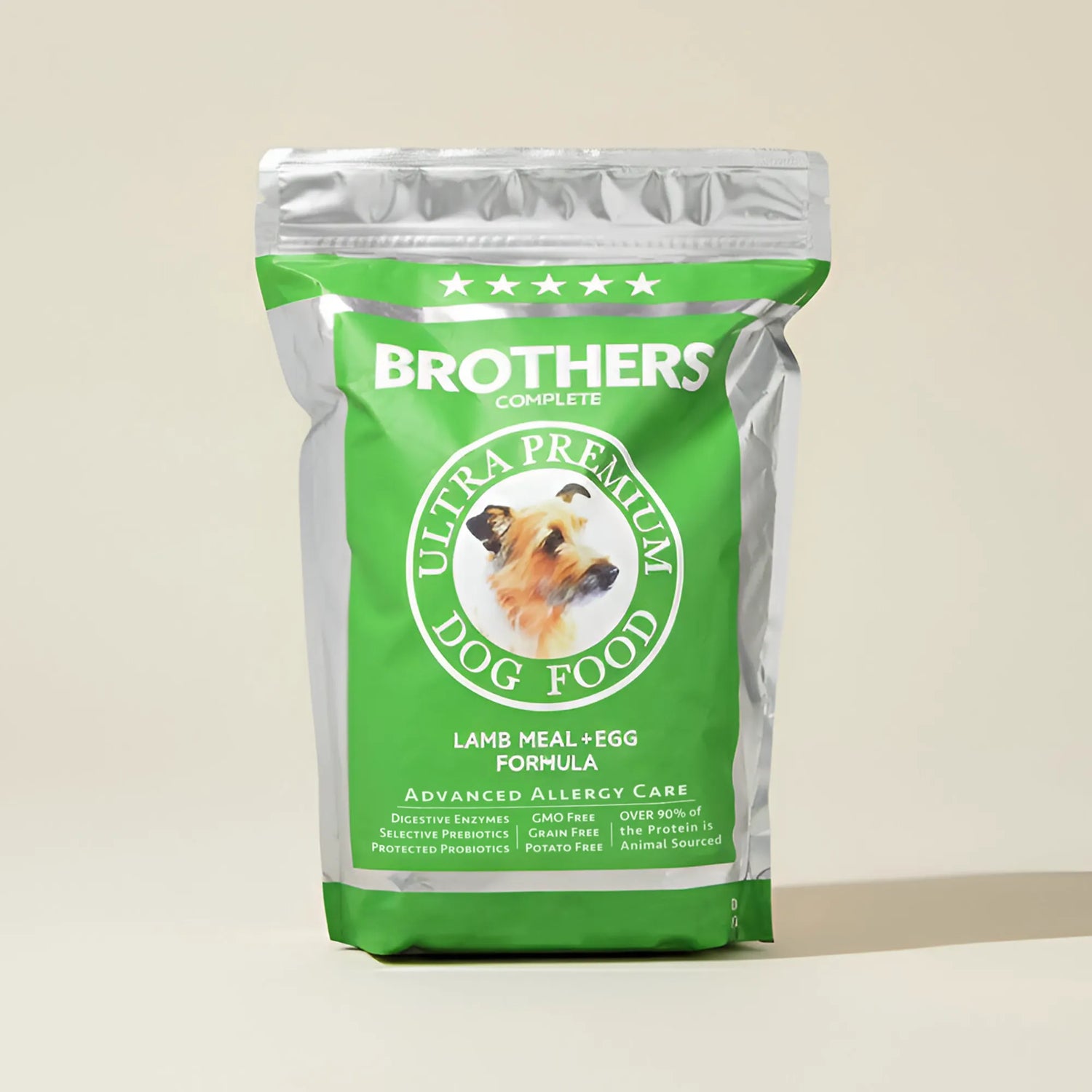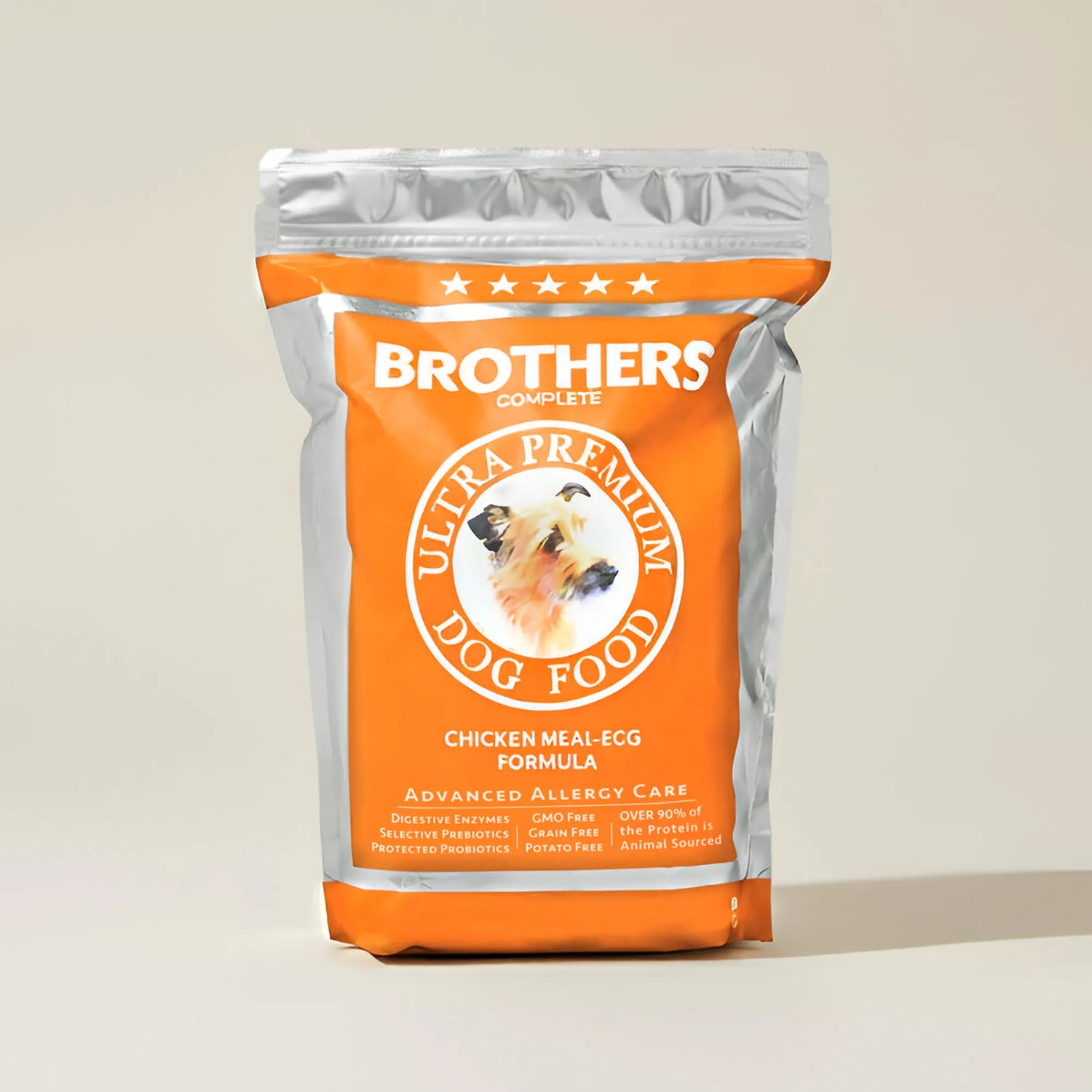
Digestive Enzymes: Why They’re Essential for Your Dog’s Health
Summary:
Digestive enzymes are often overlooked in dog nutrition — but they play a vital role in your dog’s ability to break down food, absorb nutrients, and maintain gut balance. Without enough enzymes, even the best dog food can go partially undigested, leading to bloating, soft stool, food sensitivities, and inflammation. In this post, we’ll explain why digestive enzymes matter, what they do, and how to choose a dog food that includes real enzyme support.
What Are Digestive Enzymes for Dogs?
Digestive enzymes are proteins that help break down food into usable nutrients. Your dog’s body makes some enzymes naturally, but many dogs — especially puppies, seniors, and those with sensitive stomachs — may not produce enough on their own.
According to VCA Animal Hospitals, the four primary enzymes dogs need are:
- Protease – breaks down protein
- Lipase – breaks down fat
- Amylase – breaks down carbohydrates
- Cellulase – helps break down fiber and plant material
These enzymes are essential to:
- Support digestion
- Maximize nutrient absorption
- Prevent food fermentation in the gut
- Reduce gas, bloating, and soft stool
- Minimize allergic reactions from undigested proteins
Why Dogs Struggle Without Enzyme Support
Even if your dog is eating “high-quality” food, they may still have issues like:
- Loose or soft poop
- Smelly gas
- Frequent ear infections or yeast flare-ups
- Gurgling stomach
- Poor appetite or pickiness
- Signs of malabsorption (dry coat, low energy, weight issues)
Many of these symptoms can stem from incomplete digestion — often caused by insufficient enzymes.
And while puppies and seniors are most at risk, even healthy adult dogs can benefit from enzyme support, especially if they:
- Eat processed kibble
- Have a history of antibiotics or gut issues
- Suffer from food sensitivities or allergies
Digestive Enzymes vs. Probiotics: What’s the Difference?
It’s a common question: Are digestive enzymes the same as probiotics?
No — but they do work together.
- Digestive enzymes break food down
- Probiotics help the gut process and balance what's been broken down
- Prebiotics feed the probiotics
As Cornell University’s Riney Canine Health Center confirms, the microbiome depends on a healthy environment — and that starts with food being properly digested.
Are Digestive Enzymes Safe for Dogs?
Yes — in fact, according to the AKC, digestive enzymes are considered safe and beneficial for most dogs when sourced from trusted manufacturers and used in proper amounts.
They’re especially helpful for:
- Dogs transitioning to a new food
- Dogs prone to loose stool or inconsistent digestion
- Dogs with suspected food sensitivities
- Puppies developing their digestive system
- Seniors with sluggish metabolism
What Foods Contain Natural Enzymes for Dogs?
While some raw foods (like organ meats and fermented foods) contain natural enzymes, most commercial dog food is heat-processed — which destroys these beneficial compounds.
That’s why choosing a food with added, shelf-stable digestive enzymes is key — especially if you feed dry or kibble-based diets.
Why Brothers Dog Food Includes Digestive Enzymes in Every Recipe
At Brothers, we know nutrition doesn’t matter unless it’s absorbed — so we don’t just focus on ingredients. We focus on digestion.
That’s why every Brothers recipe includes a custom blend of digestive enzymes and probiotics designed to:
- Help your dog fully break down and absorb nutrients
- Prevent undigested food from causing gut irritation
- Reduce stool volume and odor
- Improve immune response and allergy resistance
- Promote gut balance and reduce yeast overgrowth
We also avoid common triggers like:
- Soy, corn, and wheat
- High-glycemic starches that disrupt gut flora
- Fillers and synthetic preservatives
Together, our enzymes and clean ingredients help dogs thrive from the inside out.
Final Thoughts: Don’t Feed Food Your Dog Can’t Digest
A clean ingredient list is a good start — but if your dog can’t digest what’s in the bowl, they can’t benefit from it.
Digestive enzymes are the missing link in many dog diets. When included as part of a gut-health-first approach, they:
- Ease transitions
- Improve stool quality
Enhance nutrient absorption - Support allergy recovery
- Make every bite count
Because the best dog food isn’t just what’s on the label. It’s what your dog can actually use.
Want to give your dog food they can truly digest?
Explore our enzyme-powered recipes designed for total gut health at brothersdogfood.com
Sources
- AKC American Kennel Club: https://www.akc.org/expert-advice/health/choosing-probiotics-for-your-dog/
https://www.akc.org/expert-advice/nutrition/probiotics-for-dogs/
- Cornell University College of Veterinary Medicine: https://www.vet.cornell.edu/departments-centers-and-institutes/riney-canine-health-center/canine-health-information/power-probiotics
- VCA Animal Hospitals: https://vcahospitals.com/know-your-pet/enzymes
Share







